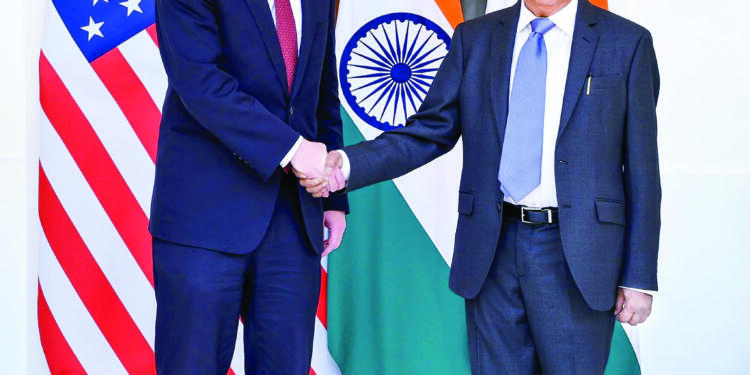Recent developments in India-US relations indicate a positive shift, overcoming potential tensions stemming from allegations of an assassination plot against Khalistani activist Gurpatwant Singh Pannun. The visit of US National Security Advisor Jake Sullivan to India has played a crucial role in this improvement. This evolving situation highlights India’s growing importance on the global stage and its strategic partnership with the United States.
Sullivan’s Visit to India: A Turning Point
Jake Sullivan’s recent trip to India included significant meetings with his counterpart Ajit Doval and Prime Minister Narendra Modi. Notably, the joint fact-sheet released by the White House following these discussions made no mention of the Pannun case. Instead, it highlighted the progress made in deepening strategic cooperation between India and the US across key technology sectors. This focus on positive aspects of the relationship suggests both nations are keen to move past the controversy.
India’s Proactive Approach to Addressing Concerns
Kurt Campbell, Deputy Secretary of State, commented on India’s response to the allegations. He stated that Indian officials are carefully examining potential institutional reforms in light of these claims. Campbell’s choice of words, referring to “allegations” rather than established facts, suggests a willingness from the US to move past this issue. India’s proactive stance in addressing these concerns demonstrates its commitment to maintaining strong ties with the US.
India’s Perspective on Pannun and Khalistan Issues
From India’s viewpoint, Pannun is a proscribed terrorist. Some officials in India believe he has connections with certain US intelligence agencies. They suspect these agencies might use Pannun to highlight non-existent Khalistan-related issues in India, following a long-standing practice of exploiting sensitive situations. This perspective underscores the complex nature of counterterrorism cooperation between India and the US.
The Nikhil Gupta Case: Complicating Factors
The case of Nikhil Gupta, an Indian national accused of involvement in the alleged plot, adds another layer to this situation. Gupta has pleaded not guilty in his first court appearance. His family sources claim he was framed by US agencies, raising questions about the use of entrapment tactics. This case has brought attention to differences in legal systems between India and the US.
Entrapment: A Unique US Legal Concept
Entrapment, a concept unique to American law, involves undercover agents inducing individuals to commit illegal acts. This tactic, not recognized in other legal systems, has been a point of contention in Gupta’s case. The use of entrapment highlights the need for greater understanding and cooperation between India and the US in legal matters.
India’s Efforts to Address US Concerns
Campbell’s statement suggests that India is taking steps to address US concerns regarding the alleged plot. This proactive approach by India appears to have satisfied Washington to some extent, paving the way for improved relations. India’s willingness to examine its institutions and practices demonstrates its commitment to international norms and bilateral cooperation.
The Future of India-US Relations
Despite the challenges posed by these allegations, both India and the US seem committed to strengthening their bilateral relationship. The focus on expanding cooperation in key areas, as evidenced by Sullivan’s visit and subsequent statements, indicates a mutual desire to move beyond this issue and foster a stronger partnership.
India’s Growing Global Role
As India continues to emerge as a major global player, its relationship with the US takes on increased significance. The way both countries have handled this diplomatic challenge showcases their maturity and commitment to long-term strategic interests.
Technology and Defense Cooperation
India and the US are increasingly collaborating in areas such as technology transfer and defense cooperation. These partnerships are crucial for both nations and contribute to regional stability in the Indo-Pacific region.
Economic Ties Between India and the US
Trade relations between India and the US continue to grow, with both countries seeking to expand economic cooperation. Despite occasional disagreements, the overall trajectory of economic ties remains positive.
Conclusion
As India continues to address concerns and implement reforms, the trajectory of India-US relations appears to be on a positive course, emphasizing shared interests and strategic cooperation over temporary setbacks. The ability of both nations to navigate complex issues like the Pannun case demonstrates the strength and resilience of their partnership.
Looking ahead, India and the US are poised to deepen their cooperation across various sectors, including defense, technology, and trade. This evolving relationship is likely to play a crucial role in shaping global geopolitics in the coming years, with India assuming an increasingly prominent position on the world stage.
ALSO READ: China has drastically reduced its investment in Pakistan due to …….?
























